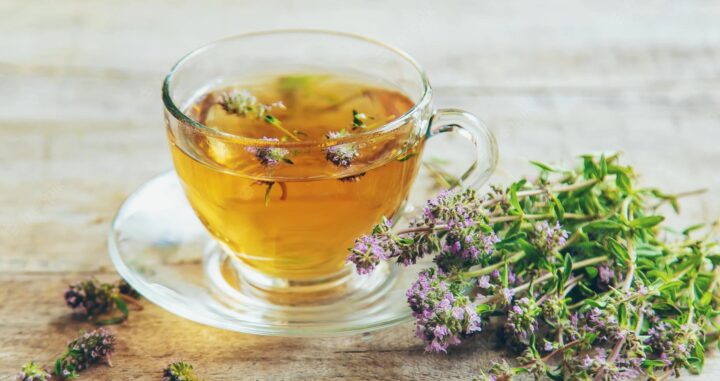
Benefits of thyme tea
The health benefits and proper preparation of thyme tea / Benefits of thyme tea
Thyme / Oregano is popular as a spice on pizzas and other Mediterranean dishes. Alternatively, thyme can also be prepared as a tea.
Thyme or “Real Dost” is a plant species from the mint family. The plant has been used as a spice and medicinal plant for several centuries. It grows perennial, flowers between July and September and reaches a height of 20 to 70 centimeters. Prepared as thyme tea, the kitchen spice is said to have healing effects on health. FITBOOK reveals what the tea can do.
What ailments does thyme tea help?
Thyme tea is a popular home remedy for respiratory problems. When coughing, it has a calming effect due to its expectorant properties. It is also said to stimulate digestion and help with flatulence and constipation. In addition, thyme tea is said to have an antispasmodic and diuretic effect, which is why it is recommended in medicinal and alternative medicine for menstrual cramps and kidney and urinary tract diseases. The tea is also said to help with complaints such as loss of appetite, asthma or rheumatism and has anti-inflammatory, antiviral and antibacterial qualities.
What active ingredients are in the tea?
Thyme tea contains many essential oils such as carvacrol. They protect the body from fungal attack and also have an anti-inflammatory effect. In addition, oregano contains tannins and bitter substances, various vitamins such as vitamin B1, B2 and B3, which primarily prevent exhaustion, vitamin C and K, which strengthen the immune system, and a high content of antioxidants.
Is the effect of Thyme tea scientifically proven?
The supposed healing effects of thyme tea have been handed down for centuries, but to date there have not been enough studies that have been carried out on humans to be able to safely assume that the tea has a health-promoting effect. Individual studies on humans and animal studies give the first indications of an anti-inflammatory effect. Researchers at the University of Bonn came to the conclusion that oregano accelerated recovery from inflammation in mice paws. For the study, they administered the active ingredient beta-caryophyllene, an essential oil found in thyme , to the mice that had an inflamed paw.2
The oils found in thyme can also inhibit the growth of certain types of harmful bacteria and viruses. A 2011 study found that applying an ointment containing thyme extract reduced the risk of wound infection by reducing bacterial contamination. Another in vitro study from 2011 found that oregano oil may be effective against certain respiratory and herpes viruses.
Are there possible risks and side effects?
Thyme tea is considered very safe and well tolerated. The vast majority of people will be able to consume the tea without any problems and without experiencing any form of side effects. As always, it is important to pay attention to your own feelings. One should stop drinking more of the tea as soon as a feeling of discomfort in the stomach area arises. In very rare cases, an allergic reaction to thyme occurs. If you are allergic to another spice from the mint family, such as basil, thyme or rosemary, you should avoid consuming thyme tea.
Where do you get the tea from and how is it prepared?
Oregano tea can be found in many supermarkets, pharmacies and in various online shops. Alternatively, you can grow the plant yourself at home or simply use the spice as a tea blend for cooking. For the preparation you have to pour one to two teaspoons of dried thyme with a quarter liter of hot water, leave for five to ten minutes and then strain the spice.
How does thyme tea taste?
Either you hate it or you love it: oregano tea has a very intense, tart taste that is characteristic of oregano. In order to get a lighter, sweet aroma, it is advisable to refine the tea with a little honey.
Categories: General
